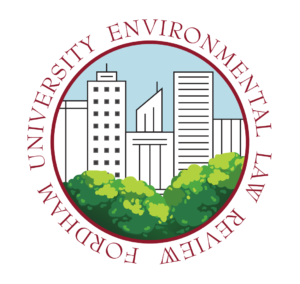A Progressive Environmental Agenda for NYC Elections
 by Michael Chambrelli, Associate Notes Editor, Fordham Environmental Law Review Journal
by Michael Chambrelli, Associate Notes Editor, Fordham Environmental Law Review Journal
With the 2020 Presidential election still months away, New Yorkers are preparing for an influx of new legislators and mayor in the 2021 New York City Elections. Riding on the back of a progressive wave in New York State elections, the spotlight is on in election that may determine the future of an environmental movement in New York City.
During a global pandemic, the main focus of any candidate’s platform must be the environmental impacts to both the climate and the people of NYC. It is important to examine the ongoing global pandemic, and its lasting impacts, through a lens of environmental injustice. Black people are dying at 2.5 times the rate of white people, while Latinx people die at 2 times the rate of white people in NYC. These numbers reflect the structural and environmental racism perpetuated by environmental policies that disproportionately affect people of color.
Environmental and structural racism has produced a large population within NYC with extraordinarily high rates of chronic health conditions that exacerbate COVID. Those with “preexisting conditions” are more likely to fall ill with COVID. In NYC in particular, there has been years of austerity budgets to defund public transportation initiatives in the city’s poorest boroughs and neighborhoods, limited funding for public housing creating a city of inefficient, crumbling buildings and raised pollution rates in the city’s poorest areas. These communities also lack green space and the health benefits associated with these spaces. The South Bronx has one of the highest rates of asthma – a signifier of COVID vulnerability.
In 2013 DeBlasio ran a false flag progressive race on a platform of reforming racial inequalities in NYC. But with this vision, DeBlasio’s OneNYC plan largely scrapped the Bloomberg era PlaNYC environmental and climate goals. In doing so, DeBlasio ignored blatantly racist and classist environmental policies and historic environmental racism. This failure has been acerbated during COVID-19. Many minority communities, who typically have less access to green spaces, and the health benefits associated with them, as well as environmentally unfriendly buildings and housing, have been overwhelming and disproportionately impacted by the virus.
A successful candidacy for either a seat on the City Council or for the Mayoralty must include a robust environmental policy with a keen focus on environmental justice. A mayoral candidate must promise to use the executive power to enact environmental justice policies targeted at these communities and NYC as a whole. NYC must set the example for a comprehensive and progressive vision the rest of the country can emulate. Candidates in both races must be sure to avoid the legacy of traditional environmental law norms, informed by white supremacy. A plan for a greener more just NYC must reflect the lived experiences of marginalized communities. New York City deserves “leaders who stand up for the health and wellbeing of all people.”

